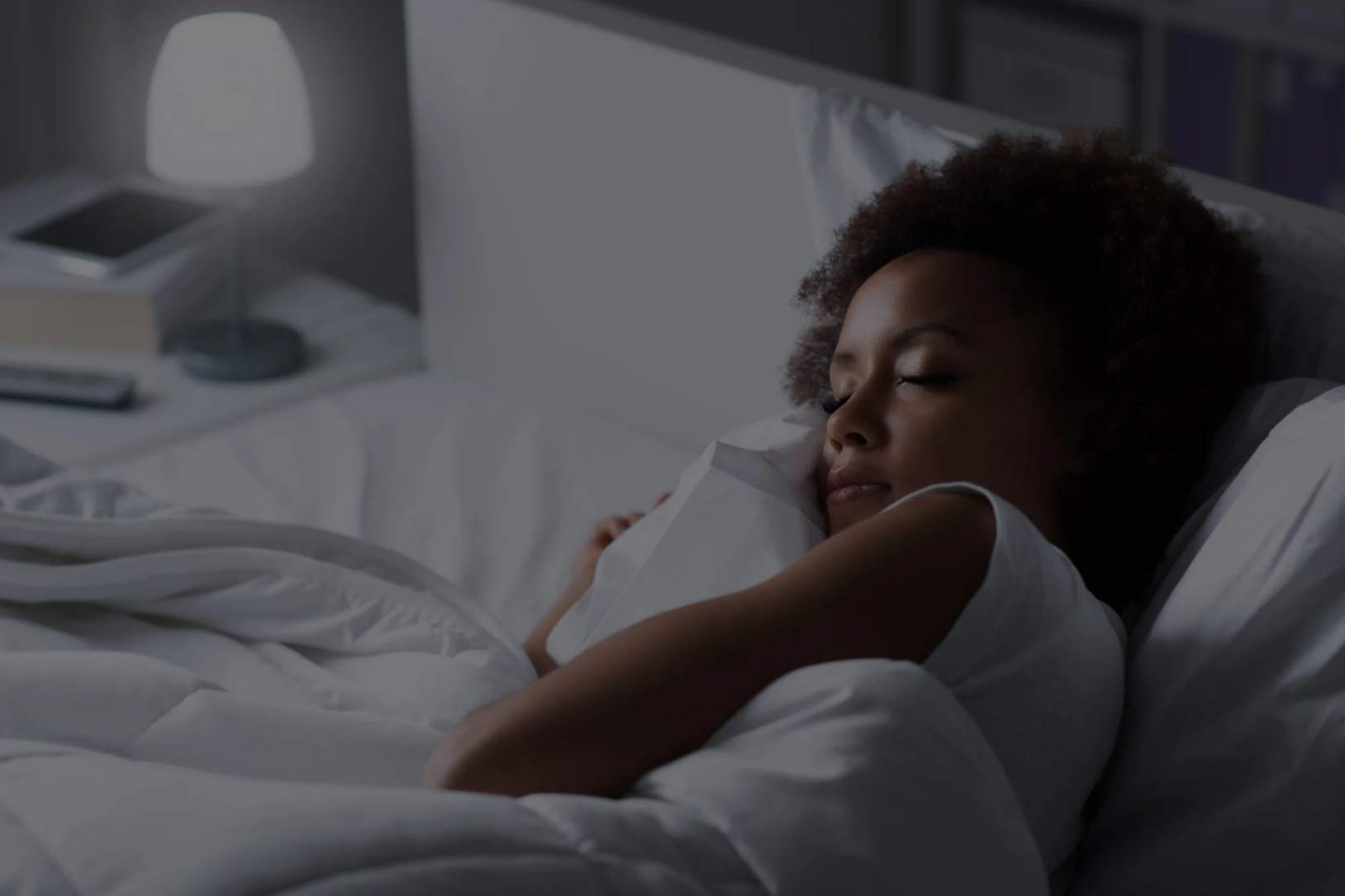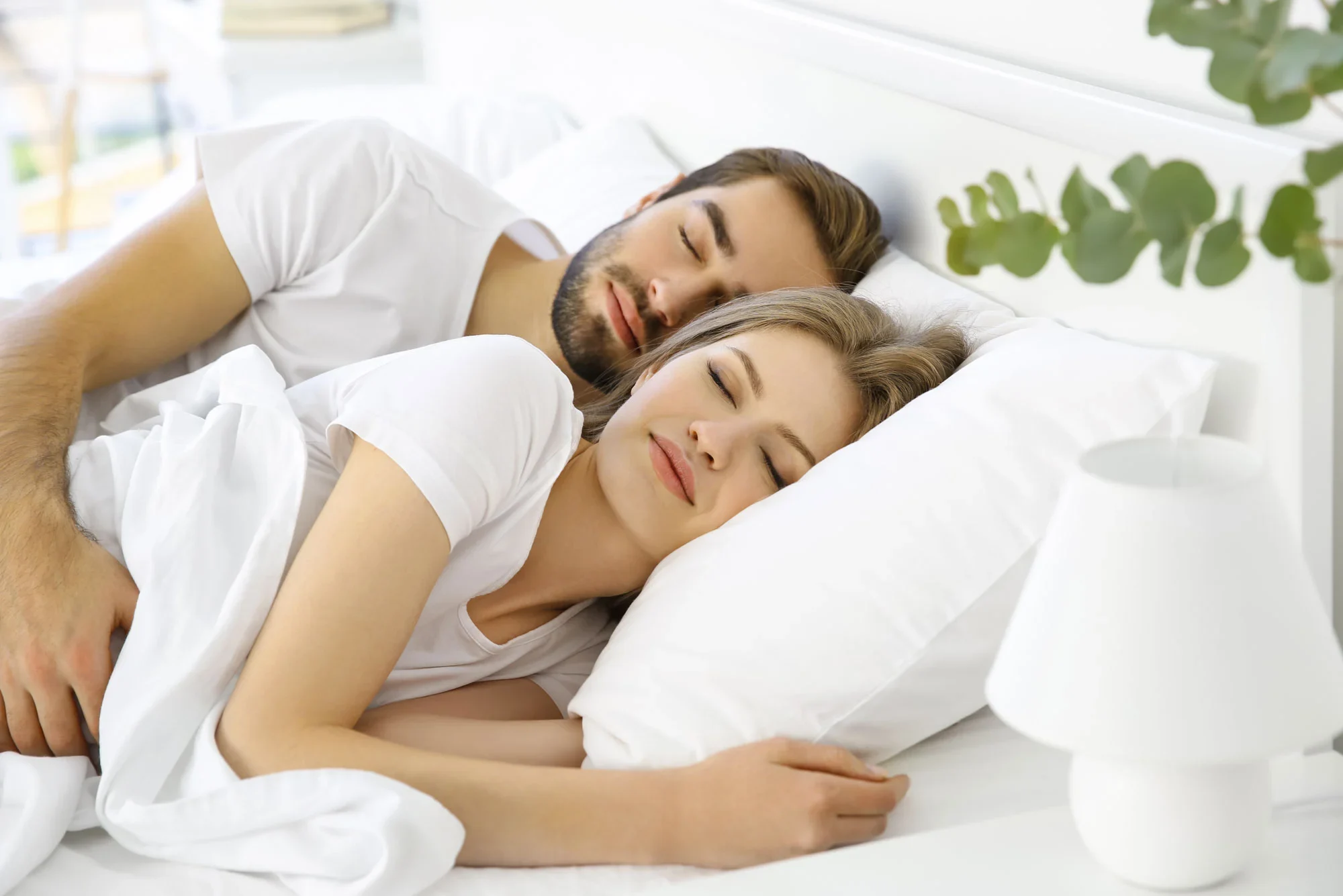At a glanceAn Introduction to Melatonin: Some basic facts about the sleep hormone |
Have you ever wondered why you start to feel sleepy once the sun goes down? That sudden urge to yawn that comes about when day turns to night isn’t a coincidence — it’s the natural hormone melatonin telling your body that it’s time to wind down!
According to the Hormone Health Network, “melatonin is essential to signaling the relaxation and lower body temperature that help with restful sleep.” Levels of this particular hormone increase at night — and signal the rest of your body that it is time to sleep.
Melatonin is produced by the pineal gland in the brain and is normally released in rhythmic cycles. It prepares our bodies for bed by helping with the timing of circadian rhythm — your body’s “24-hour internal clock.” Plus, melatonin helps promotes deep, restorative sleep, improved sleep quality, longer sleep duration, and less nighttime waking.
Unfortunately, our body’s natural melatonin production declines as we age — and it is also sadly easy to impede and disrupt your own body’s production of the sleep hormone.
Which is why millions of Americans use melatonin as a sleep aid supplement. However, most of these products use a form of melatonin that is made using harsh chemicals, GMOs, and other unwanted elements. This is why it is important to know what is inside your melatonin supplement!
How Melatonin Helps You Sleep
It is estimated that over $1.5 billion will be spent on melatonin products this year — nearly twice the total amount spent just five years earlier. As unfortunate as this may seem (it does, after all, imply a significant sleep deficit among a vast number of people), the sad truth is that most of this money will be spent on synthetic melatonin (more on this later). But melatonin is produced by our body, so you might be wondering why it is such a hot commodity. And since melatonin helps you achieve a good night’s sleep, it is important to know how it works and what it does to benefit you.
Melatonin helps balance the timing of your circadian rhythm, a key factor in regulating a healthy sleep-wake cycle. According to Sleep Foundation, this internal clock is influenced by external factors, such as light during the day and darkness at night, and helps promote restful and restorative sleep. However, when your circadian rhythm is disturbed, it can lead to insomnia and other sleep-related issues.
Before people carried mobile phones, tablets, and other handheld devices with them at all times, most of us did not have to worry about blocking out light once the sun went down. But with the introduction of technology — especially those mobile devices that are seemingly impossible to put down — we are exposed to light, especially brain-activating blue light waves, at times when our body would normally not be (like when we should be winding down in bed instead of ramping ourselves up on social media). According to the Medical School at Harvard University, we may be paying a price for the blue light that our devices emit on a nightly basis. These blue wavelengths disturb the body’s circadian rhythm and can hurt our chances at a good night’s sleep.
Don’t Let Your Gadgets Distract You!
So, how do we keep our circadian rhythm in check? Harvard suggests avoiding bright screens two to three hours before bed, wearing blue light blocking glasses at night, and using dim red lights for night lights. Red light is less likely to interrupt circadian rhythm and block the benefits of melatonin, according to America’s oldest learning institution.
Dr. Matthew Walker, PhD., a professor of neuroscience and the director of the Center for Human Sleep Science at the University of California, Berkeley, has stressed the importance of sleeping in a gadget-free room. Walker’s 12 Tips For Good Sleep states that gadgets such as mobile phones and computers can be a distraction. Like Harvard, the New York Times best-selling author says there are things we can do to reduce blue light at night, such as using blue light filters on our gadgets (Note: Apple devices contain a built-in service called “Night Shift”. Android users can download apps such as “Twilight” that contain similar functionality).
Melatonin helps combat the blue light waves your devices emit. In fact, the rise in popularity of melatonin supplements has gave way to multiple clinical studies that have put the “sleep hormone” to the test.
The evidence in these studies shows that taking melatonin before bed may help you sleep. One body of research, a meta-analysis consisting of 19 studies that involved 1,683 subjects, compared melatonin to a placebo in improving sleep parameters in patients with sleep issues. The study found that melatonin showed significant efficacy in reducing sleep latency (the amount of time it takes to fall asleep) as well as increasing total sleep time.
Dr. Walker’s Sleep Is Your Superpower is another helpful resource that accentuates the importance of sleep. In his TED Talk, Walker proclaims that men who regularly sleep just four to five hours per night share the same levels of testosterone as men 10 years older than them. Which is to say, there testosterone level is lower than it should be! Walker also notes that females experience equivalent impairments in reproductive health due to a lack of sleep.
But sleep deprivation is on the hook for other problems as well, says Walker. In the spring, we lose an hour of sleep due to daylight saving time. As a result, we experience a 24% increase in heart attacks the following day. Conversely, we see a 21% decline in heart attacks after gaining an hour of sleep in autumn. This goes for car crashes and road traffic accidents as well.
It’s obvious that if we do not get the sleep we need every night, we put our health at risk both in the short term and over time.
What Happens When We Don’t Get Enough Sleep?
A healthy circadian rhythm is an important piece in your sleep quality puzzle. But common distractions such as cell phones and tablets have become seemingly impossible to put down. As such, we’ll need to continue to use these blue-light emitting devices in a responsible manner, especially at night.
But what happens when we simply don’t get as much sleep as we should? On the surface, it is easy to say we’ll feel tired and lethargic throughout the day. But with a deeper dive, we know the issues extend beyond an uncontrollable yawn.
According to the U.S. Department of Health and Human Services, sleep deprivation may be linked to weight gain. In fact, sleep loss has been associated with a higher risk of obesity and weight gain in recent years.
Back in 2016, a research team led by Drs. Erin Hanlon and Eve Van Cauter at the University of Chicago wanted to better understand how sleep and weight gain interact biologically. The study enlisted 14 healthy adults – 11 men and 3 women – aged 18-30 years. Each person was placed on a fixed diet and allowed either 8.5 hours or 4.5 hours of sleep for 4 consecutive days. Those who were sleep deprived experienced effects similar to ones given off by the endocannabinoid (eCB) system, an important trigger in the brain that regulates appetite, eating behavior, and energy levels.
The research found that, “when sleep-deprived, participants had eCB levels in the afternoon that were both higher and lasted longer than when they’d had a full night’s rest. This occurred around the same time that they reported increases in hunger and appetite.”
Aside from the findings that stemmed from the University of Chicago, there are other risks that come with sleep deprivation as well, found here. This newsletter from the U.S. Department of Health and Human Services explains the benefits of achieving the right amount of sleep — and the downfalls of not getting enough.
The newsletter stresses that you are unable to function at your best when you’re tired. We need sleep to think clearly, have quick reflexes, and to focus. Dr. Merrill Mitler, a sleep expert and neuroscientist at National Institutes of Health, made it clear: “The fact is, when we look at well-rested people, they’re operating at a different level than people trying to get by on 1 or 2 hours less nightly sleep.”
Additionally, Dr. Mitler mentioned, “(a) loss of sleep impairs your higher levels of reasoning, problem-solving, and attention to detail.” As a result, those who don’t receive enough sleep are usually less productive at work and at a much higher risk for traffic accidents.

Different Types Of Melatonin
Synthetic Melatonin
It is estimated that over one billion dollars will be spent on melatonin products this year. However, most of that money will be allocated towards synthetic melatonin. The U.S Department of Health and Human Services acknowledged that most melatonin supplements are made synthetically.
Although this particular type of melatonin is both convenient to produce and cheap to sell, these lab-made copies of real melatonin are not natural. Furthermore, synthetic melatonin may contain harsh chemicals, unwanted solvents, and GMOs. So, before you grab synthetic melatonin off the shelf at your local drugstore, be sure to read the supplement facts to learn what’s inside your melatonin supplement (though keep in mind, current labeling practices do not require the manufacturer to disclose the chemicals used to create synthetic melatonin; the label will most likely just say “melatonin” despite its synthetic origins).
PhytoMelatonin
PhytoMelatonin is the naturally sourced alternative to synthetic melatonin. PhytoMelatonin is produced from plants, which means it can be Vegan and made without harsh chemicals and GMOs. Again, checking the product label is important; disclosure of these things is not required, but if they are missing from the label it is a surefire clue that something else was used in the final formulation that makes the product itself not Vegan, Non-GMO, and/or non-synthetic — even if the melatonin in the supplement itself is PhytoMelatonin.
According to clinical research published in Molecules, PhytoMelatonin is related to tryptophan, an amino acid that helps your body make melatonin. The research considers PhytoMelatonin to be an “interesting compound due to its outstanding actions at the cellular and physiological level, especially its protective effect in plants exposed to diverse stress situations, while its vegetable origin offers many opportunities because it is a natural compound.”
Furthermore, the research points out “PhytoMelatonin-rich plants may be responsible for a sleep-inducing effect due to its known role in circadian rhythms, especially in sleep quality.” PhytoMelatonin helps achieve deep, restorative sleep without synthetic materials.
Although melatonin is most closely associated with sleep, it possesses antioxidant properties as well. And research shows that “excellent qualities of melatonin as an antioxidant are shown in the case of PhytoMelatonin.” In fact, data clearly indicates that there is a direct relationship between an increase in PhytoMelatonin levels and an increase in serum antioxidant capacity.
Time To Sleep!
Melatonin is widely used as a sleep aid. It helps maintain circadian rhythm, the natural sleep cycle in our bodies, and other rest and sleep related biological functions. Many people use melatonin to promote deep, restful sleep, improved sleep quality, less nighttime waking, and even help them with jet lag. However, most turn to synthetic melatonin instead of naturally sourced forms.
So, before you finish reflecting on your day and prepare to go to bed, be sure to check if your melatonin is free of those pesky ingredients that are impossible to pronounce.
Now that we got that out of the way, it is time to settle into bed and enjoy a good night’s sleep!
References
https://aasm.org/study-finds-that-melatonin-content-of-supplements-varies-widely/
https://fastlifehacks.com/matthew-walker-12-tips-for-good-sleep/
https://www.health.harvard.edu/staying-healthy/blue-light-has-a-dark-side
https://www.hormone.org/your-health-and-hormones/glands-and-hormones-a-to-z/hormones/melatonin
https://www.ncbi.nlm.nih.gov/pmc/articles/PMC3656905/
https://www.ncbi.nlm.nih.gov/pmc/articles/PMC6017233/
https://www.nccih.nih.gov/health/melatonin-what-you-need-to-know
https://newsinhealth.nih.gov/2013/04/benefits-slumber
https://www.nih.gov/news-events/nih-research-matters/molecular-ties-between-lack-sleep-weight-gain
https://www.sleepfoundation.org/circadian-rhythm
https://www.sleepfoundation.org/melatonin
https://somnatural-melatonin.com
https://www.statista.com/statistics/967361/total-melatonin-supplements-market-size-globally/
https://www.ted.com/talks/matt_walker_sleep_is_your_superpower/transcript#t-183658









